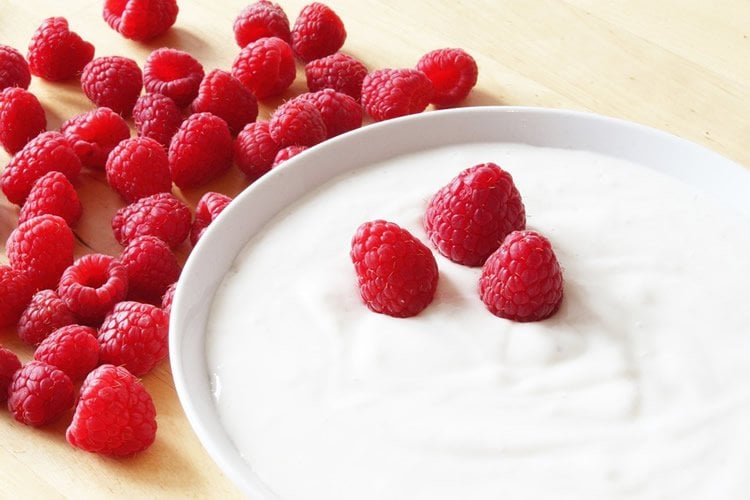Summary: Researchers find no evidence to back up the claim that probiotics can help to reduce anxiety.
Source: University of Kansas.
If you’re expecting probiotics to reduce your anxiety, it might be time to put down that yogurt spoon — or supplement bottle — and call a professional instead.
A new study from the University of Kansas appearing Wednesday in PLOS ONE reviewed available research conducted on animals and people, finding evidence that probiotics can reduce anxiety in rodents, but not in humans.
“I think people should wait — that’s the best takeaway here,” said lead author Daniel J. Reis, a doctoral student of clinical psychology at KU. “We’re in the early days of this research into probiotics. I’ve seen a lot of stories hyping probiotics as helpful for anxiety. We’re not saying they do nothing, but we have a lot to figure out before we know if they can be used therapeutically. I wouldn’t recommend using probiotics to treat anxiety at this stage.”
Reis and his KU colleagues Stephen S. Ilardi and Stephanie E.W. Punt reviewed data from 22 preclinical studies involving 743 animals and 14 clinical studies of 1,527 individuals, finding “Probiotics did not significantly reduce symptoms of anxiety in humans and did not differentially affect clinical and healthy human samples.”
However, the researchers said their findings shouldn’t close the door on probiotics — the microorganisms in yogurts and other products that take up residence in our guts — as a potentially useful therapy for anxiety and other cognitive issues in the future.
“We see a lot of pathways between our digestive systems and our brains,” Reis said. “We see nervous system connections, the inflammation response — these microorganisms seem to be able to influence the human brain through this gut-brain axis. We wanted to know if changes to the microbiota could improve mental health. But in terms of research, it’s all at a very preliminary stage.”
For example, Reis said rodents showing reduced anxiety after ingesting probiotics took a lot more probiotics than people in clinical studies, which could explain the difference in results.
“If you control for the weights of animals versus humans, animals are getting much larger doses of probiotics in these experiments by one or two orders of magnitude. Sometimes the doses were hundreds of times higher than we see in human studies,” he said. “That’s something else we think is worth looking at.”
Co-author Ilardi also noted “there are thousands of different microbial species residing in the body, and they undoubtedly exert different effects on the brain. We even saw tantalizing hints in the rodent studies that some microbes may be particularly helpful in lowering anxiety, and we suggested that these probiotic strains might be particularly promising to study in future human trials.”

Also, the KU researchers pointed out that humans in the existing studies weren’t suffering from especially high levels of anxiety.
“We looked at clinical studies with people, and, in terms of the current literature, we didn’t find evidence that probiotics were reducing self-reported anxiety,” Reis said. “But we noticed that none of the studies looked at individuals with clinically elevated anxiety. They weren’t looking specifically at anxious individuals. In terms of mental health applications for probiotics, those clinical populations haven’t been targeted yet.”
For people experiencing anxiety, Reis suggested reaching out for expert help.
“For anxiety, the number one thing is to seek professional treatment,” he said. “That should be the first action — there are some good therapies out there that can help with various anxiety disorders. There are also helpful medications. These are the sort of things the people should do at this point to get help.”
Source: University of Kansas
Publisher: Organized by NeuroscienceNews.com.
Image Source: NeuroscienceNews.com image is in the public domain.
Original Research: Open access research for “The anxiolytic effect of probiotics: A systematic review and meta-analysis of the clinical and preclinical literature” by Daniel J. Reis, Stephen S. Ilardi, and Stephanie E. W. Punt in PLOS ONE. Published June 20 2018.
doi:10.1371/journal.pone.0199041
[cbtabs][cbtab title=”MLA”]University of Kansas “Absolutely No Proof Probiotics Ease Anxiety.” NeuroscienceNews. NeuroscienceNews, 20 June 2018.
<https://neurosciencenews.com/probiotics-anxiety-9399/>.[/cbtab][cbtab title=”APA”]University of Kansas (2018, June 20). Absolutely No Proof Probiotics Ease Anxiety. NeuroscienceNews. Retrieved June 20, 2018 from https://neurosciencenews.com/probiotics-anxiety-9399/[/cbtab][cbtab title=”Chicago”]University of Kansas “Absolutely No Proof Probiotics Ease Anxiety.” https://neurosciencenews.com/probiotics-anxiety-9399/ (accessed June 20, 2018).[/cbtab][/cbtabs]
Abstract
The anxiolytic effect of probiotics: A systematic review and meta-analysis of the clinical and preclinical literature
Background
Probiotics have generated intensive research interest in recent years as a novel mode of treatment for physical and mental illness. Nevertheless, the anxiolytic potential of probiotics remains unclear. The present systematic review and meta-analysis aimed to evaluate the clinical and preclinical (animal model) evidence regarding the effect of probiotic administration on anxiety.
Methods
The PubMed, PsycINFO, and Web of Science databases were reviewed for preclinical and clinical studies that met the defined inclusion and exclusion criteria. The effects of probiotics on anxiety-like behavior and symptoms of anxiety were analyzed by meta-analyses. Separate subgroup analyses were conducted on diseased versus healthy animals, specific preclinical probiotic species, and clinical versus healthy human samples.
Results
Data were extracted from 22 preclinical studies (743 animals) and 14 clinical studies (1527 individuals). Overall, probiotics reduced anxiety-like behavior in animals (Hedges’ g = -0.47, 95% CI -0.77 –-0.16, p = 0.004). Subgroup analyses revealed a significant reduction only among diseased animals. Probiotic species-level analyses identified only Lactobacillus (L.) rhamnosus as an anxiolytic species, but these analyses were broadly under-powered. Probiotics did not significantly reduce symptoms of anxiety in humans (Hedges’ g = -0.12, 95% CI -0.29–0.05, p = 0.151), and did not differentially affect clinical and healthy human samples.
Conclusions
While preclinical (animal) studies suggest that probiotics may help reduce anxiety, such findings have not yet translated to clinical research in humans, perhaps due to the dearth of extant research with clinically anxious populations. Further investigation of probiotic treatment for clinically relevant anxiety is warranted, particularly with respect to the probiotic species L. rhamnosus.






